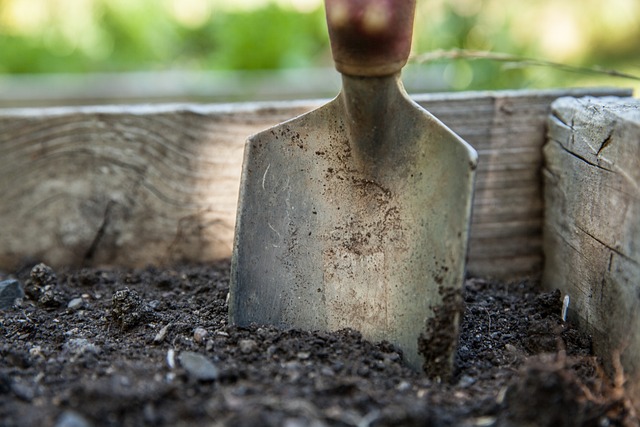When camping or hiking in the great outdoors, it is essential to practice responsible waste disposal to minimize the impact on the environment. Proper waste disposal not only helps to preserve the natural beauty of the wilderness but also protects the health of humans and wildlife. One of the most important aspects of responsible waste disposal is burying human waste.
In this article, I will explore why burying poop is necessary, how to do it properly, and alternative methods of waste disposal. By the end of this article, you will have a better understanding of why burying poop is crucial and how to do it in a way that is safe, sanitary, and environmentally friendly.
The Importance of Proper Waste Disposal
The wilderness is a delicate ecosystem, and human waste can have a significant impact on its health. Improper disposal of human waste can lead to water contamination, soil pollution, and the spread of diseases. When human waste is not disposed of correctly, it can attract wildlife, which can lead to potentially dangerous encounters. Therefore, proper waste disposal is essential when camping or hiking in the wilderness.
Follow The Leave No Trace. The Leave No Trace principles are a set of guidelines that promote responsible outdoor ethics, including proper waste disposal. These principles emphasize that humans should leave the wilderness as they found it, which includes packing out all trash and burying human waste.
Moreover, burying poop is an effective way to prevent the spread of disease-causing bacteria and viruses. Human waste can contain harmful microorganisms such as E. coli, Salmonella, and Giardia. When human waste is not disposed of correctly, these microorganisms can contaminate the soil and water sources, which can lead to illnesses in humans and wildlife.
Proper waste disposal is crucial for the health of the environment and the safety of humans and wildlife in the wilderness. By following the proper waste disposal techniques, you can help preserve the beauty of the wilderness and protect its ecosystem.
The Mechanics of Burying Poop
Burying poop is a simple and effective way to dispose of human waste in the wilderness. However, it is essential to follow proper techniques to prevent the contamination of water sources and the spread of diseases. Here are the steps for burying poop:
- Choose an appropriate location: Choose a location at least 200 feet away from water sources, campsites, and trails. This helps to prevent contamination of water sources and the spread of diseases.
- Dig a cathole: Use a small shovel or trowel to dig a hole that is 6 to 8 inches deep and 4 to 6 inches wide. The hole should be big enough to accommodate all of the waste, including toilet paper.
- Do your business: Squat over the cathole and do your business. Make sure to aim for the hole and not the sides of it.
- Clean up: Use toilet paper or wipes to clean yourself thoroughly. If using toilet paper, use a small amount, and make sure to bury it with the waste.
- Bury the waste: Use a shovel or trowel to cover the waste completely with the soil. Make sure the hole is filled and level with the surrounding ground.
- Disinfect: Use hand sanitizer or soap and water to disinfect your hands after burying the waste.
Nature’s Restroom: How to Poop in The Woods Without Toilet Paper
The Science of Composting Human Waste
Composting human waste is an environmentally friendly and sustainable way to dispose of waste. Composting is the process of breaking down organic matter into a nutrient-rich soil amendment called compost. This involves the use of a composting toilet or system that collects and treats human waste to produce compost.
Composting toilets use a process called aerobic digestion to break down human waste. This process involves adding air and moisture to the waste, which promotes the growth of microorganisms that break down the organic matter. The composting toilet collects the waste and stores it in a container or chamber where it is treated for several months to a year. During this time, the waste is heated and mixed, which speeds up the decomposition process. The end result is a safe and nutrient-rich compost that can be used to fertilize plants.
Composting human waste has several benefits, including reducing water pollution, conserving water, and producing a valuable resource. Composting toilets use little or no water, which reduces water usage and eliminates the need for septic systems. The resulting compost is rich in nutrients and can be used to improve soil health and plant growth. Furthermore, composting human waste reduces the amount of waste that goes into landfills, which reduces methane emissions and the need for additional landfill space.
However, composting human waste can be challenging in the wilderness due to the lack of infrastructure and resources. Composting toilets require maintenance, and the composting process can take several months to a year to complete. Therefore, it is not a practical solution for short camping trips or backpacking expeditions.
Overall, composting human waste is a sustainable and environmentally friendly way to dispose of waste. However, it requires proper infrastructure, resources, and maintenance, making it challenging to implement in the wilderness.
Alternative Methods of Disposing of Human Waste
Burying poop is not the only method of disposing of human waste in the wilderness. There are several alternative methods, including packing out waste, using portable toilets, and using established facilities. Here are 3 details on each of these methods:
- Packing out waste: This method involves carrying human waste in a bag or container and disposing of it in a proper trash receptacle. This method is recommended in areas where burying poop is not possible or permitted, such as high alpine areas, deserts, or areas with rocky or frozen ground.
- Using portable toilets: Portable toilets, also known as “WAG bags” or “pack-it-out” toilets, are lightweight and easy to transport. These toilets are lined with a bag that contains a gelling agent to solidify the waste and minimize odor. After use, the bag is sealed and carried out for proper disposal. Portable toilets are a good alternative when burying poop is not possible or permitted, and packing out waste is not practical.
- Using established facilities: Many campgrounds and recreation areas have established facilities such as pit toilets or flush toilets. These facilities are maintained and serviced regularly, making them a convenient and sanitary option for waste disposal. Using established facilities is recommended when available to minimize the impact on the environment and reduce the spread of diseases.
Each method of waste disposal has its advantages and disadvantages, depending on the location, duration of the trip, and personal preferences. It is essential to research and plans ahead to determine the best method of waste disposal for your specific needs and the regulations of the area you are visiting. Remember that proper waste disposal is crucial for preserving the beauty of the wilderness and protecting its ecosystem.
Conclusion
In conclusion, proper waste disposal is crucial when camping or hiking in the wilderness to preserve the environment, protect the health of humans and wildlife, and promote responsible outdoor ethics. Burying poop is a simple and effective way to dispose of human waste, but it is important to follow proper techniques to prevent contamination of water sources and the spread of diseases.
Composting human waste is an environmentally friendly and sustainable way to dispose of waste, but it requires proper infrastructure and maintenance, making it challenging to implement in the wilderness.
Alternative methods of waste disposal include packing out waste, using portable toilets, and using established facilities. Each method has its advantages and disadvantages, depending on the location, duration of the trip, and personal preferences.
Remember to research and plan ahead to determine the best method of waste disposal for your specific needs and the regulations of the area you are visiting. By following proper waste disposal techniques, you can help preserve the beauty of the wilderness and protect its ecosystem for future generations to enjoy.










